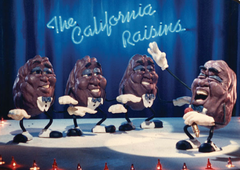weekly column
|
Each week, find a commentary on something connected to verses of Torah or another source of wisdom
|
|
Each week, find a commentary on something connected to verses of Torah or another source of wisdom
|
 The Last of Deuteronomy If the prophet speaks in the name of the Lord and the oracle does not come true, the oracle was not spoken by the Lord; the prophet has uttered it presumptuously; do not stand in dread of him. Deuteronomy 18:22 The long courtship of the American voter has come to a momentary halt. Those among us who were persuaded to do the right thing – formally choose our candidates for elected office – are in a honeymoon period with the winners. These are the days when our hopes are highest that the promises made to secure our support will become the standards of the next term of service. Of course, if this isn’t your first rodeo, you have developed some measure of cynicism about whether the promises made on the campaign trail will be kept. It is a fact that no one other than a despot, large or local, can implement their preferences without collaboration from others. So, “I will lower your taxes” or “I will find you a job” or “I will keep your children safe” is aspirational. Perhaps the skill of the leader to make progress on the platform that they represented is really what those promises were all about. But no one captured the skepticism that mitigates hope better than those two observers of the human condition, Norman Whitfield and Barrett Strong. They weren’t pundits assessing the political climate in the tumultuous days of 1966. They wrote about love and betrayal in their R&B classic “I Heard It Through the Grapevine.” Gladys Knight, John Fogerty, cartoon raisins and, most memorably, Marvin Gaye were among the most famous artists to sing the third verse: People say believe half of what you see; oh, and none of what you hear… Apparently, the tradition of cultivated incredulity goes back to the Bible. As you may recognize if you think about it even a little, lots of things take place in the narrative because someone claims, “God said so.” (The text usually wound up in the more literary form of “Thus sayeth the Lord.”) The prophet was not so much someone who could predict future occurrences as someone who could channel God’s instruction in the shorter- or longer-term. So how was an individual, a group or a tribe to know whether the oracle presented by a claimant to divine insight was reliable, delusional or an opportunistic lie? The Biblical answer is remarkably practical and modern for a source so spiritual and old. It is this: wait and see. If the prophet suggests something that will validate the vision, have patience. If it happens, the visionary spoke the truth. If not, it was made up. A false prophet likely never got a second chance. There is a serious dilemma with this approach to credibility, especially if the prophet is urging commitment to a course of action that is meant to avoid catastrophe (marauding enemies, impending plagues, divine wrath, to name a few). Waiting to see if the zombies actually are going to rise from the ground and eat our flesh before we begin preparations is only the right choice if the zombies remain dormant. Or, a bit more seriously, waiting until hurricanes and fires ravage the environment before we take steps to curtail our contributions to climate change is only the right choice if those things never happen. Campaign promises are not the same things as Biblical prophecies, though we sometimes treat them that way. Given the number of times over the past year or so we have heard political opponents accuse each other of falling down on their (previous) jobs, you might think that their aspirations are frustrated only by their personal shortcomings – or their blatant dishonesty. That may be true some of the time, but an equal ingredient is the unreasonable expectation of supporters that the best possible outcome is only one election away. When the moment comes to deliver on prophecy or promise, someone will be disappointed. It is not human nature to suspend hopes and expectations. Those who want a prophet will be let down by a fraud. Those who were convinced that change was going to come will be disheartened if the tally goes against them. A better approach, at this moment, is to commit to the outcome we desire. If I was ready to work hard to get my contender elected, then my efforts have only begun. I think that’s the only way to get it done. At least it is what I heard through the grapevine.
0 Comments
Leave a Reply. |
Archives
October 2023
Categories |